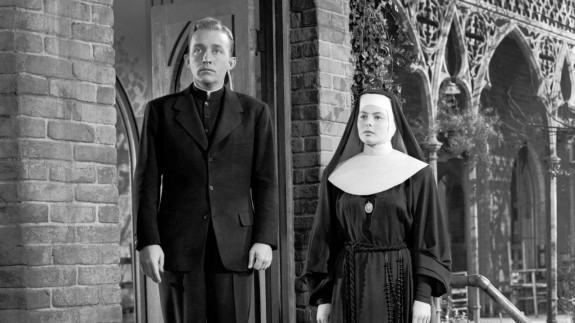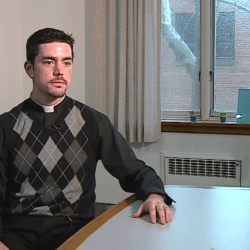An interesting observation via Word on Fire, from Dominican Br. Patrick Mary Briscoe:
It may well be the case that your parish priest preaches homilies that are—how do we say it gently?—uninspiring. Maybe you’ve come to him to ask a serious question about the faith concerning a teaching or mystery you’ve really struggled with, and he’s failed to offer satisfying answers. Perhaps he lacks charm and charisma, or falls short when it comes to offering the parish visionary leadership. He may well be a little impersonal, excessively shy, obnoxiously gregarious, slavishly bound to rubrics, overly political, or simply unexceptional. These may be the human realities of your priest…and you don’t have to like them.
Catholics often feel guilty if they’re unable to relate personally to their priest. Longing for their parish to incarnate the virtues of The Bells of St. Mary’s, people rightly have high expectations for their priests. Notwithstanding the faults of their beloved clergy, something lingers. For many faithful Catholics it’s hard to write off a priest. For better or worse, his office (his role) makes it difficult to treat him as if he were one more set of footprints stepping into, then out of, a life.
The simple fact is, the relationship of a priest to his people is not like any typical inter-personal relationship of our day. The people of God aren’t—strictly speaking—soldiers in an army, nor is the priest their commander. Parishes aren’t franchises, and the priest isn’t the office manager. Churches aren’t daycare centers, and the priest certainly isn’t a babysitter. So what, then, is the priest? How does he relate to his people?
The priest is a shepherd. Shepherds have a certain authority, like a military officer, but they exercise it differently. Sheep aren’t to be numbered off and subjected to evaluations according to certain performance standards: sheep are to be loved. Critics reject this image, saying it assigns the lay faithful the role of “mindless following,” and admittedly, like all analogies, it limps. However, it’s worth pointing out that being a shepherd isn’t exactly glamorous either. In reality, shepherding entails long, cold nights, exposure to the elements, mud, wandering, and lots of time alone. Our culture’s emphasis on egalitarianism and our deeply ingrained American democratic values can present considerable stumbling blocks to entering into this aspect of an authentic (healthy!) relationship with a priest.
Priests are physicians. A priest shouldn’t treat parishioners like employees. Far from focusing on stamping time-cards, filling out requisition forms, or accumulating benefits, the priest’s mission is to transform lives. As good doctors help patients to make much-needed lifestyle transitions, priests lead people to a closer relationship with God. Good doctors, and good priests, treat the wholeperson, communicating information clearly and patiently accompanying souls on their healing journey.
There’s more. Check it out.












